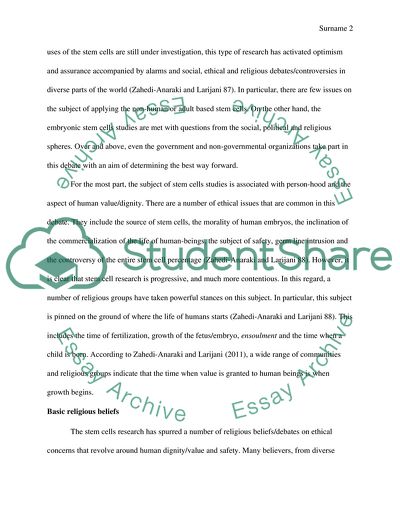Cite this document
(Theology: the Stem Cell Research Debate Essay Example | Topics and Well Written Essays - 1500 words - 3, n.d.)
Theology: the Stem Cell Research Debate Essay Example | Topics and Well Written Essays - 1500 words - 3. https://studentshare.org/religion-and-theology/1851611-theology
Theology: the Stem Cell Research Debate Essay Example | Topics and Well Written Essays - 1500 words - 3. https://studentshare.org/religion-and-theology/1851611-theology
(Theology: The Stem Cell Research Debate Essay Example | Topics and Well Written Essays - 1500 Words - 3)
Theology: The Stem Cell Research Debate Essay Example | Topics and Well Written Essays - 1500 Words - 3. https://studentshare.org/religion-and-theology/1851611-theology.
Theology: The Stem Cell Research Debate Essay Example | Topics and Well Written Essays - 1500 Words - 3. https://studentshare.org/religion-and-theology/1851611-theology.
“Theology: The Stem Cell Research Debate Essay Example | Topics and Well Written Essays - 1500 Words - 3”. https://studentshare.org/religion-and-theology/1851611-theology.


